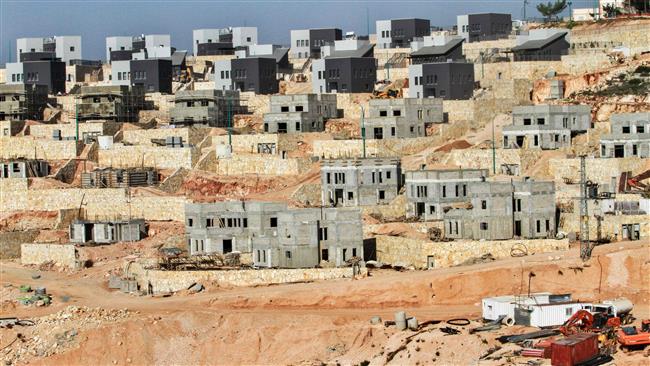
RNA - On Thursday, Israel’s so-called security cabinet unanimously voted in favor of the construction of a settlement near the Palestinian city of Ramallah. It is supposed to house some 40 Israeli families reluctantly evicted from Amona, an outpost razed in February because of a court ruling that structures built on privately-owned Palestinian land — like Amona — be removed.
Just one day before the new settlement was approved, state members of the Arab League had called for Israel’s withdrawal from occupied territories and the formation of an independent Palestinian state based on the borders that had been designated before 1967, the year when the West Bank, and other territories, were occupied by Israel.
In a statement released on Friday, British Foreign Secretary Boris Johnson described the new Israeli construction plan as “contrary to international law,” stressing that it “seriously” undermined the prospects of the so-called two-state solution.
“I urge Israel not to take steps such as these, which move us away from our shared goal of peace and security and make it harder to achieve a different relationship between Israel and the Arab world,” he said.
The French Foreign Ministry separately said that Israel’s settlement announcement was “extremely worrying” and that Paris “firmly condemns these decisions that threaten peace and risk exacerbating tensions on the ground.”
“France reiterates that settlements are illegal under international law, notably under Resolution 2334 of the UN Security Council. It calls on Israel to respect its international obligation,” the French ministry statement read, referring to a historic December 2016 resolution condemning Israeli settlement activities as a “flagrant violation of international law.
The German Foreign Ministry adopted a similar stance and emphasized that Berlin expected Tel Aviv “to clarify which solution they are pursuing for a lasting peace with the Palestinians.”
“Germany will not recognize any change in the 1967 lines, which has not been agreed between the parties,” the spokesperson added.
The European Union (EU)’s top diplomat, Federica Mogherini, also issued a statement reiterating that, “All settlements in the occupied Palestinian territory… are illegal under international law, constitute an obstacle to peace and threaten to make a two-state solution impossible.”
Countries that have typically been supporting Israel in the past seem to be growing restless with the regime in Tel Aviv because of its defiant settlement activities on occupied territory. Such impatience was displayed in the passing of the Security Council Resolution 2334 (2016), during which the United States — Israel’s staunchest ally — uncharacteristically decided not to wield its veto power and allowed the adoption of the text with a mere abstention, much to the chagrin of Tel Aviv.
Approved 14-0 in the 15-member Council, the resolution calls on Israel to immediately and completely cease all settlement activities on occupied Palestinian territory, including the West Bank.
Although the new US administration has denounced the former administration for letting the resolution go through, the Israeli regime now seems to be seeing more friction with other Western governments.
Earlier on Friday, the United Nations (UN), too, expressed its disapproval of the new Israeli measure.
Furthermore, Arab League Secretary General Ahmed Aboul Gheit denounced the new settlement bid, noting that it “clearly showed that Israel isn’t a true partner for achieving peace, and is captive in the hands of radical settlers.”
Palestine Liberation Organization (PLO) Secretary General Saeb Erekat also warned on Friday that the Palestinians would hold “Netanyahu and his extremist government fully responsible for the consequences of such violations.”
“We send a clear message to the US administration, the United Nations and to the European Union: Peace is not going to be achieved by tolerating such crimes,” he said.
Mustafa Barghouti, a Palestinian politician and a member of the PLO, also called for the imposition of international sanctions on Israel over its settlement activities on occupied land during a demonstration marking the Land Day near Ramallah. The settlement announcement “is a grave violation” and a “very big and dangerous step,” he said.
Over 230 settlements have been built since the 1967 Israeli occupation of the Palestinian territories of the West Bank and East Jerusalem al-Quds.
847/940